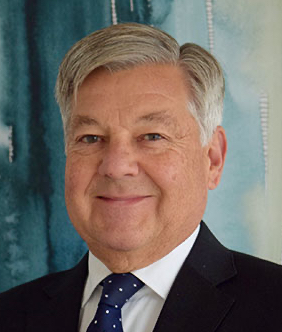Well this is rich. Directors conflicted to their eyeballs, objecting to a liquidator’s application to be appointed liquidator on the basis that he’d be conflicted. And a judge agreeing.
Of course, in an administration involving an impugned corporate group, dubious inter-company loans, deeds of settlement and of release, Swiss accounts and Israeli banks, industrial-scale tax avoidance and jurisdictional departures, exhuming a related entity can carry as much potential for risk as it does opportunity, which is just how Adelaide-based practitioner John Sheahan likes it.
“The interested parties’ complain that Mr Sheahan did not initially place the Binetter Entities’ Deed before the Court when this application was made and originally informed the Court that he was “not aware of any conflict of interest of duty that would make it improper for [him] to act as liquidator of” Shield. The interested parties rely on this to submit that Mr Sheahan will not only be placed in a conflict but that he is unlikely to recognise the conflict in order to adequately mitigate it.” Justice Elizabeth Cheeseman.
Nevertheless, in the case of Ligon 158 Pty Limited (in liq) v Shield Holdings Australia Pty Limited (de-registered) [2024] FCA Sheahan has got less than he bargained for after applying to the Federal Court for orders reinstating Shield Holdings Australia Pty Limited (Shield).
Shield had been part of the group of entities controlled by Nudie Juice founders the Binetter family, whose lengthy travails with the Australian Tax Office (ATO) are well documented.
As liquidator appointed to the group in 2014 Sheahan has helped generate gross returns of some $250 million, including via a $137 million settlement with the ATO obtained from an Israeli bank.
Last year he commenced fresh proceedings against various Binettter family members, his investigations convincing him that Shield should be reinstated, wound up and himself appointed liquidator.
The company had previously been abandoned by sole director Andrew John Binnetter and was deregistered by ASIC in 2020.
But while agreeing that Shield be reinstated and wound up Federal Court judge Elizabeth Cheeseman declined to order that Sheahan also be appointed as its liquidator, siding with the objections of those Binetter family members who as interested parties argued that Sheahan would be impossibly conflicted.
This is due to Sheahan also being liquidator of the four corporate plaintiffs in the proceedings that would in all likelihood bring proceedings against Shield.
Complicating matters further – ir that wasn’t enough – is the existence of deeds of settlement and release entered into in October 2018 between Sheahan as liquidator of various Binetter entities, the Binetters and the Commissioner of Taxation (CoT).
The interested parties argued before Justice Cheeseman that these deeds meant the corporate plaintiffs weren’t “persons aggrieved” and that it would therefore be unjust to reinstate Shield.
But if her honour was minded to reinstate Shield and order that it be wound up, then the interested parties argued against Sheahan being appointed liquidator, saying any claims the corporate plaintiffs have against Shield can only properly be pursued if the releases in the Binetter Entities’ Deed are successfully impugned.
“The interested parties maintain their position that for Mr Sheahan to take the steps he has foreshadowed to impugn the Binetter Entities’ Deed they submit that this would likely place Mr Sheahan in breach of the Liquidators’ Deed. They contend that it is entirely plausible that Mr Sheahan may face a cross-claim if he takes such steps,” the judge said.
“The interested parties also point to the way in which this application has been conducted as further reasons why Mr Sheahan should not be appointed as liquidator of Shield,” the judge said.
“They first point out that Mr Sheahan’s submissions used inflammatory language in describing the motivations of the Binetter family in entering the Binetter Entities’ Deed. I do not agree. The language deployed was no doubt descriptive and involved a degree of advocacy in addressing a hypothetical intended to aid an inference of objective intention — I do not accept that it was inflammatory.
“The second point raised is more significant,” her honour continued.
“The interested parties’ complain that Mr Sheahan did not initially place the Binetter Entities’ Deed before the Court when this application was made and originally informed the Court that he was “not aware of any conflict of interest of duty that would make it improper for [him] to act as liquidator of” Shield. The interested parties rely on this to submit that Mr Sheahan will not only be placed in a conflict but that he is unlikely to recognise the conflict in order to adequately mitigate it.”
iNO’s mail is that Sheahan will likely respond to the judge’s decision by making an application to be appointed special purpose liquidator (SPL) of Shield, leaving the freshly installed general purpose liquidator (GPL) Alan Walker of WLP Restructuring with a front row seat for the next round.
For Sheahan however Shield is just one of the Binetter feet he’s holding to the fire. There’s also Rawson Finances, which was supposed to have been wound up by the Binnetters following the Commissioner of Taxation’s (CoT) successfully setting aside a judgment of a Full Bench of the Federal Court on the basis that the decision had been obtained by fraud.
In January the CoT was awarded more than $3.5 million in indemnity costs in respect of the overturned judgment but so far, Rawson Finances has avoided being placed in external administration.



Be the first to comment on "Liquidator can’t overcome conflicted claims"